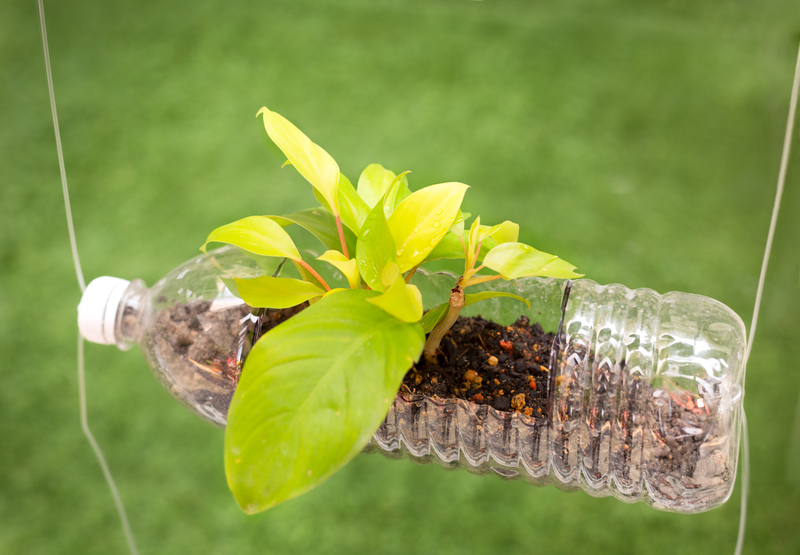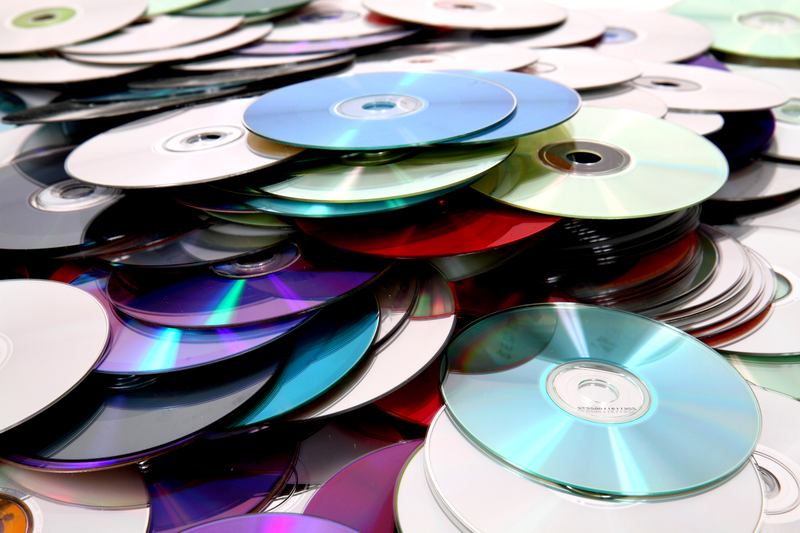Achieve Maximum Recycling Efficiency with These Tips
Recycling has become an integral part of sustainable living. However, to get the most out of our recycling efforts, it's essential to master the art of recycling efficiency. Whether you're new to recycling or looking to up your game, implementing best practices can make a significant difference in resource conservation and waste reduction.

Understanding the Importance of Efficient Recycling
Recycling efficiency isn't just about tossing everything plastic, paper, or metal into the blue bin. It's about maximizing the amount of waste that can actually be reused - reducing contamination, conserving resources, and minimizing environmental impact.
- Reduces landfill waste
- Conserves natural resources
- Saves energy and water
- Lowers greenhouse gas emissions
- Boosts the circular economy
To truly achieve high recycling efficiency, you must understand what can be recycled, how to prepare materials properly, and ways to avoid common mistakes. Let's dive deeper into actionable tips that will help you maximize your recycling efficiency at home, at work, and in your community.
Tip 1: Know What Materials Are Recyclable in Your Area
One of the biggest mistakes people make when trying to improve recycling efficiency is tossing unrecyclable materials into the bin. Recycling programs vary from city to city, so check your local municipal waste management website for specific guidelines.
- Check the recycling codes on plastics (usually numbers 1-7 inside the recycling triangle)
- Review your curbside recycling pamphlet or local government website
- Identify which types of paper, glass, plastic, and metal are accepted
Why does this matter? Contaminating your recycling with non-recyclable materials (like plastic shopping bags, greasy pizza boxes, or ceramics) can cause entire batches to be sent to landfill.
Pro Tip:
Take the extra minute to double-check if an item is recyclable before you toss it into the bin. When in doubt, throw it out--wishcycling does more harm than good!
Tip 2: Prepare Recyclables Correctly
Proper preparation of recyclable materials is crucial to boost recycling process efficiency. Contaminated or dirty recyclables not only reduce recycling efficiency, but can also damage recycling equipment and lower the quality of recycled goods.
- Rinse containers - Wash out food and drink containers to remove residue. A quick rinse helps avoid attracting pests and keeps items clean for recycling.
- Remove lids and caps - Unless your program specifies otherwise, remove plastic lids from glass jars and bottles.
- Flatten cardboard boxes - This saves space in your bin and allows collection trucks to fit more materials per load.
- Separate different materials - If an item is made from multiple materials (like a cardboard-plastic box), break it into components if possible.
Did You Know?
One dirty container--like an unwashed peanut butter jar--can contaminate an entire bin of recyclables. Clean recyclables mean higher quality materials for the circular economy!
Tip 3: Avoid Common Recycling Mistakes
Even well-intentioned recyclers can make errors that reduce overall recycling effectiveness. Stay alert and avoid these frequent mistakes:
- Including plastic bags in curbside recycling (bring them to grocery store drop-offs instead)
- Putting in greasy pizza boxes or wax-coated paper products (they're often not recyclable)
- Recycling tanglers--items like hoses, cords, or hangers (these jam sorting machines)
- Disposing of electronics or batteries in household bins (take them to designated e-waste centers)
Double-check your local rules--what's accepted in one city might not be in another!
Tip 4: Reduce, Reuse, THEN Recycle
Recycling efficiently starts before items reach your bin. Always prioritize reducing waste and reusing items before turning to recycling.
- Buy in bulk to reduce packaging waste
- Opt for products with minimal or recyclable packaging
- Embrace reusable bags, bottles, and containers
- Donate or repurpose household items instead of throwing them away
By reducing waste at the source and embracing reuse, you'll generate less waste overall and make the recycling process more effective.
Tip 5: Set Up an Efficient Home Recycling Station
Organization is key to achieving maximum recycling efficiency at home. Setting up a dedicated recycling area ensures materials are sorted, clean, and ready for pickup.
- Use clearly labeled bins for paper, plastics, metal, and glass
- Place the station in a convenient area- the kitchen, garage, or mudroom work well
- Keep a small container for batteries, electronics, and tricky recyclables until you can drop them at a proper facility
- Post your city's recycling guidelines or printables near your station
Tip: Involve the whole family for better results! Kids love sorting games, and involving household members builds lifelong habits.
Tip 6: Participate in Community Recycling Programs
Take recycling efficiency beyond your home by getting involved in community recycling events and programs. Many cities offer special collection days for hazardous waste, electronics, textiles, or bulky items.
- Participate in local recycling drives
- Volunteer for neighborhood clean-up or sorting events
- Connect with eco-minded neighbors to exchange tips
- Support local businesses that embrace sustainable packaging and practices
Community-wide recycling efficiency means more materials are diverted from landfill and more awareness is built around proper recycling.
Tip 7: Learn About Advanced Recycling Technologies
Recycling methods continue to evolve as technology improves. Educate yourself on the latest advancements to boost your recycling process efficiency even further.
- New facilities can recycle items once deemed non-recyclable, like food containers or complex plastics
- AI-driven sorting machines increase the speed and accuracy of recyclable material separation
- Bio-recycling breaks down plastics into reusable raw materials using enzymes
- Deposit-return systems for bottles and cans yield extremely high recovery rates
Keep up-to-date by following environmental organizations, local news, or waste management authorities for changing guidelines and opportunities.
Tip 8: Compost Organic Waste
Composting is a form of recycling that turns food scraps, yard waste, and certain paper products into rich soil instead of landfill-bound trash. Diverting compostables from trash maximizes overall household recycling efficiency.
- Set up a backyard compost bin, or
- Use a countertop compost collector (available at many home stores)
- Sign up for your city's green waste pickup if available
- Avoid composting meat, dairy, and oily foods unless you have an advanced system
Fun Fact: Food and organic waste make up almost 30% of what we throw away. Composting helps convert this waste into valuable fertilizer and reduces methane emissions from landfills.
Tip 9: Educate and Advocate for Effective Recycling
Improving recycling efficiency is a collective effort. Share your knowledge with others, whether it's family members, friends, or coworkers.
- Lead by example - demonstrate best practices and keep up-to-date with recycling news
- Organize educational workshops at school, work, or community groups
- Encourage businesses to offer proper recycling and composting facilities
- Advocate for better local recycling rules or systems
When more people recycle correctly, contamination goes down and recycling plants process materials more efficiently.
Tip 10: Audit and Improve Your Recycling Habits
Continuous improvement is the key to maximum recycling efficiency. Periodically audit your trash and recycling output for a week.
- Identify contamination - check if you're putting non-recyclables in the recycling bin
- Spot opportunities - are there reusable or compostable alternatives to anything you toss?
- Keep track of your progress, set goals, and make it a learning process for the entire household or company
Remember: The greener your choices, the more you contribute to a healthier planet.

Frequently Asked Questions About Maximizing Recycling Efficiency
What does recycling efficiency really mean?
Recycling efficiency refers to the percentage of recyclable material that is properly collected, sorted, and successfully transformed back into usable resources--while minimizing contamination and the need for landfill disposal.
Why do some recyclables end up in landfills?
Contamination is the most common reason--food residue, dirty or non-recyclable materials, or improper sorting can spoil entire batches.
How can technology help increase recycling efficiency?
Advanced sorting systems using robots, AI, and optical scanning drastically improve material separation and reduce human error. New recycling technologies also allow for the processing of materials once considered unrecyclable.
What are the best habits for a more effective recycling routine?
- Stay informed about what your local program accepts
- Keep recyclables clean and dry
- Organize and label bins for easy sorting
- Prioritize reducing and reusing to minimize waste overall
Conclusion: Start Achieving Maximum Recycling Efficiency Today
Effective recycling requires awareness, mindfulness, and a willingness to adapt. By following these tips, you can make a tangible difference in your household, workplace, or community, all while supporting global sustainability.
Remember:
Maximize your recycling performance by knowing your local rules, preparing recyclables correctly, and always striving to reduce, reuse, and recycle. Efficiency in recycling isn't about perfection but about making continual improvements for the benefit of our environment.
Adopt these habits, educate others, and celebrate your progress towards a cleaner, greener future. Your efficient recycling efforts truly matter!